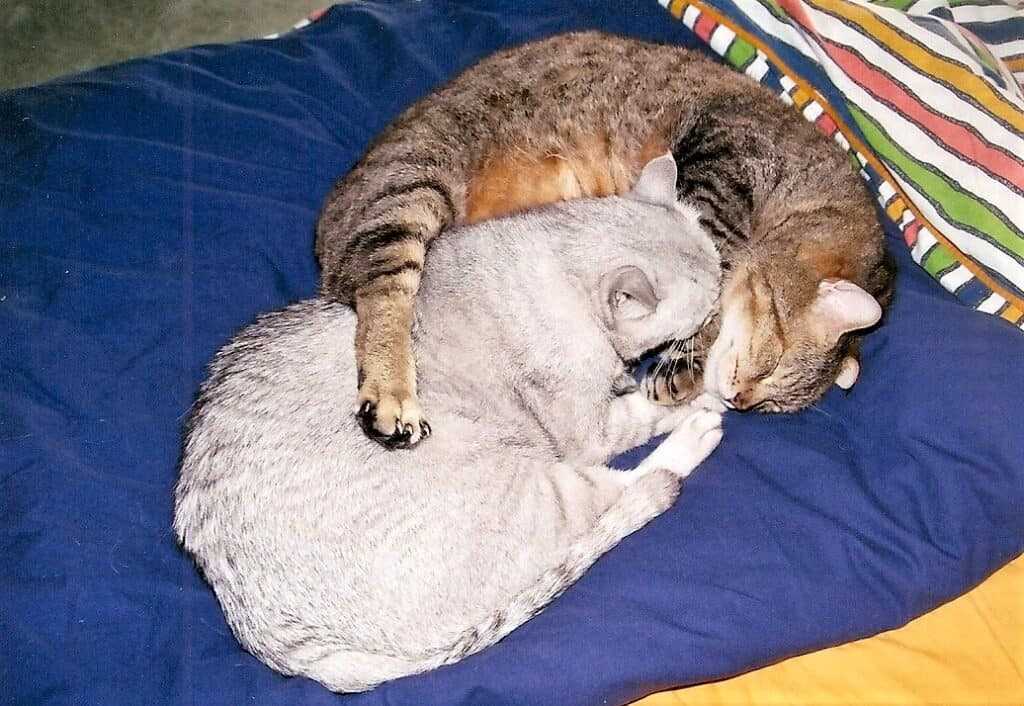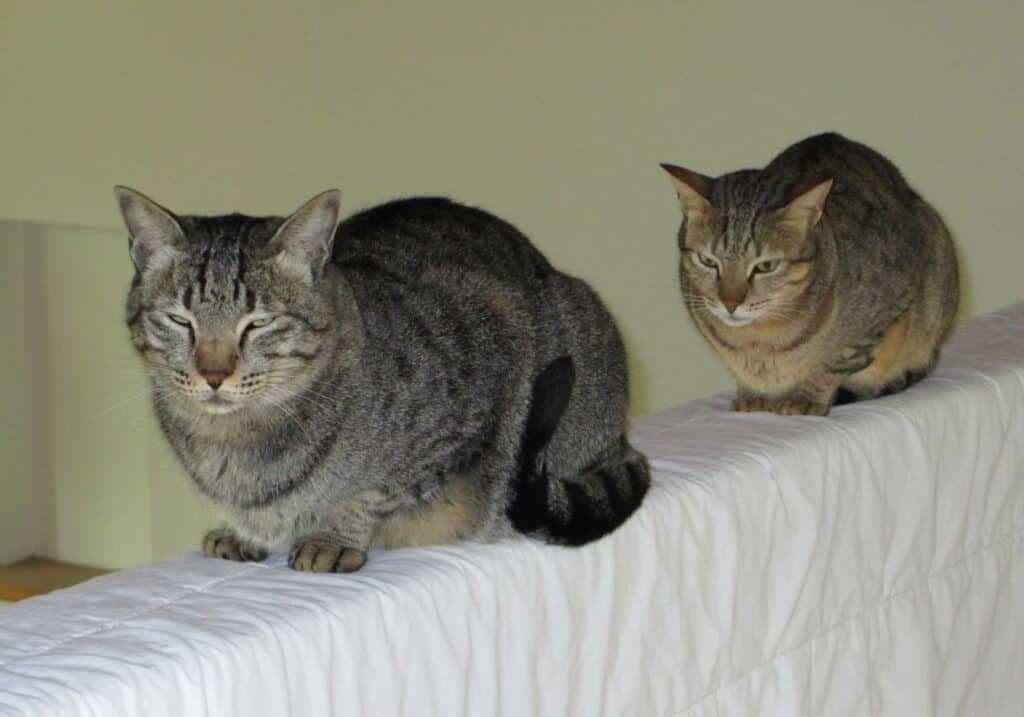



First, allow your companion to observe the absence. Create a space in the home where the departed used to spend time. This subtle change in environment can serve as a gentle reminder. Your friend might start to sense that something is different.
Next, engage in shared activities that reflect the bond you had with the lost furry companion. Play with toys that the two of you enjoyed together or visit favorite resting spots. This familiarity can spark memories and emotional connections, allowing for a natural understanding of the situation.
Observe your mate’s behavior closely. Changes in their routine may indicate their awareness of the loss. If they exhibit signs of distress or confusion, provide comfort through your presence. Gentle purring and close proximity can be soothing during this difficult time.
Finally, consider introducing scents or objects that belonged to the lost friend. This could be a blanket or a toy that carries their unique smell. This tactic can help your buddy process the absence in a way that feels safe and familiar.
Understanding Feline Emotions and Grief
Recognizing the signs of emotional distress in felines is crucial. When a companion passes, it’s common for the surviving one to exhibit changes in behavior. Look for alterations in eating habits, sleeping patterns, or increased vocalization. These can be indicators of sadness or confusion.
Behavioral Changes
Withdrawal from play or social interactions is often observed. You might notice your friend seeking solitude or showing less interest in activities they once enjoyed. Providing extra attention and gentle encouragement can help them feel more secure during this time.
Creating a Comforting Environment
Ensuring a calming space with familiar scents can aid in emotional recovery. Soft bedding, favorite toys, and quiet areas will create a safe haven. This environment allows for natural grieving, helping them process their feelings while still feeling supported.
Signs Your Feline Companion May Be Affected by the Loss

Pay attention to changes in behavior, as these can reveal emotional distress. If your furry friend is suddenly less active, it may indicate sadness. A drop in playfulness or reluctance to engage in activities they once enjoyed is a common response to loss.
Altered Eating Habits
Observe their appetite closely. A noticeable decrease in food intake or changes in eating patterns can signal grief. Conversely, some may overeat as a coping mechanism. Monitor their bowl for signs of change.
Vocalizations and Social Withdrawal

Increased vocalizations, such as meowing or yowling, could be a call for attention or a sign of distress. On the flip side, withdrawal from social interactions may also indicate they are struggling with the absence of their companion. Keep an eye on how often they seek your company.
Steps to Help Your Feline Companion Cope with the Change
Provide a comfortable space where your friend feels secure. This area should contain familiar items like toys, blankets, and bedding to create a sense of stability. Change can be overwhelming, so maintaining their routine is crucial.
Encourage Interaction
Engage with your buddy through gentle play or petting sessions. This can help alleviate feelings of loneliness. Introduce new activities gradually, such as interactive toys, to stimulate their mind while keeping them active.
Monitor Health and Behavior
Pay attention to any changes in appetite or energy levels. If you notice anything unusual, such as lethargy or excessive vocalization, consider consulting a veterinarian. For minor ailments, refer to this guide on how to treat a cat cold at home naturally. It’s vital to ensure they are physically well during this emotional time.
Lastly, offer them extra love and patience. Your presence and reassurance can be incredibly comforting during this difficult period. They may also need time to adjust, so allow them to grieve at their own pace.
First, allow your companion to observe the absence. Create a space in the home where the departed used to spend time. This subtle change in environment can serve as a gentle reminder. Your friend might start to sense that something is different.
Next, engage in shared activities that reflect the bond you had with the lost furry companion. Play with toys that the two of you enjoyed together or visit favorite resting spots. This familiarity can spark memories and emotional connections, allowing for a natural understanding of the situation.
Observe your mate’s behavior closely. Changes in their routine may indicate their awareness of the loss. If they exhibit signs of distress or confusion, provide comfort through your presence. Gentle purring and close proximity can be soothing during this difficult time.
Finally, consider introducing scents or objects that belonged to the lost friend. This could be a blanket or a toy that carries their unique smell. This tactic can help your buddy process the absence in a way that feels safe and familiar.
Understanding Feline Emotions and Grief
Recognizing the signs of emotional distress in felines is crucial. When a companion passes, it’s common for the surviving one to exhibit changes in behavior. Look for alterations in eating habits, sleeping patterns, or increased vocalization. These can be indicators of sadness or confusion.
Behavioral Changes
Withdrawal from play or social interactions is often observed. You might notice your friend seeking solitude or showing less interest in activities they once enjoyed. Providing extra attention and gentle encouragement can help them feel more secure during this time.
Creating a Comforting Environment
Ensuring a calming space with familiar scents can aid in emotional recovery. Soft bedding, favorite toys, and quiet areas will create a safe haven. This environment allows for natural grieving, helping them process their feelings while still feeling supported.
Signs Your Feline Companion May Be Affected by the Loss

Pay attention to changes in behavior, as these can reveal emotional distress. If your furry friend is suddenly less active, it may indicate sadness. A drop in playfulness or reluctance to engage in activities they once enjoyed is a common response to loss.
Altered Eating Habits
Observe their appetite closely. A noticeable decrease in food intake or changes in eating patterns can signal grief. Conversely, some may overeat as a coping mechanism. Monitor their bowl for signs of change.
Vocalizations and Social Withdrawal

Increased vocalizations, such as meowing or yowling, could be a call for attention or a sign of distress. On the flip side, withdrawal from social interactions may also indicate they are struggling with the absence of their companion. Keep an eye on how often they seek your company.
Steps to Help Your Feline Companion Cope with the Change
Provide a comfortable space where your friend feels secure. This area should contain familiar items like toys, blankets, and bedding to create a sense of stability. Change can be overwhelming, so maintaining their routine is crucial.
Encourage Interaction
Engage with your buddy through gentle play or petting sessions. This can help alleviate feelings of loneliness. Introduce new activities gradually, such as interactive toys, to stimulate their mind while keeping them active.
Monitor Health and Behavior
Pay attention to any changes in appetite or energy levels. If you notice anything unusual, such as lethargy or excessive vocalization, consider consulting a veterinarian. For minor ailments, refer to this guide on how to treat a cat cold at home naturally. It’s vital to ensure they are physically well during this emotional time.
Lastly, offer them extra love and patience. Your presence and reassurance can be incredibly comforting during this difficult period. They may also need time to adjust, so allow them to grieve at their own pace.
First, allow your companion to observe the absence. Create a space in the home where the departed used to spend time. This subtle change in environment can serve as a gentle reminder. Your friend might start to sense that something is different.
Next, engage in shared activities that reflect the bond you had with the lost furry companion. Play with toys that the two of you enjoyed together or visit favorite resting spots. This familiarity can spark memories and emotional connections, allowing for a natural understanding of the situation.
Observe your mate’s behavior closely. Changes in their routine may indicate their awareness of the loss. If they exhibit signs of distress or confusion, provide comfort through your presence. Gentle purring and close proximity can be soothing during this difficult time.
Finally, consider introducing scents or objects that belonged to the lost friend. This could be a blanket or a toy that carries their unique smell. This tactic can help your buddy process the absence in a way that feels safe and familiar.
Understanding Feline Emotions and Grief
Recognizing the signs of emotional distress in felines is crucial. When a companion passes, it’s common for the surviving one to exhibit changes in behavior. Look for alterations in eating habits, sleeping patterns, or increased vocalization. These can be indicators of sadness or confusion.
Behavioral Changes
Withdrawal from play or social interactions is often observed. You might notice your friend seeking solitude or showing less interest in activities they once enjoyed. Providing extra attention and gentle encouragement can help them feel more secure during this time.
Creating a Comforting Environment
Ensuring a calming space with familiar scents can aid in emotional recovery. Soft bedding, favorite toys, and quiet areas will create a safe haven. This environment allows for natural grieving, helping them process their feelings while still feeling supported.
Signs Your Feline Companion May Be Affected by the Loss

Pay attention to changes in behavior, as these can reveal emotional distress. If your furry friend is suddenly less active, it may indicate sadness. A drop in playfulness or reluctance to engage in activities they once enjoyed is a common response to loss.
Altered Eating Habits
Observe their appetite closely. A noticeable decrease in food intake or changes in eating patterns can signal grief. Conversely, some may overeat as a coping mechanism. Monitor their bowl for signs of change.
Vocalizations and Social Withdrawal

Increased vocalizations, such as meowing or yowling, could be a call for attention or a sign of distress. On the flip side, withdrawal from social interactions may also indicate they are struggling with the absence of their companion. Keep an eye on how often they seek your company.
Steps to Help Your Feline Companion Cope with the Change
Provide a comfortable space where your friend feels secure. This area should contain familiar items like toys, blankets, and bedding to create a sense of stability. Change can be overwhelming, so maintaining their routine is crucial.
Encourage Interaction
Engage with your buddy through gentle play or petting sessions. This can help alleviate feelings of loneliness. Introduce new activities gradually, such as interactive toys, to stimulate their mind while keeping them active.
Monitor Health and Behavior
Pay attention to any changes in appetite or energy levels. If you notice anything unusual, such as lethargy or excessive vocalization, consider consulting a veterinarian. For minor ailments, refer to this guide on how to treat a cat cold at home naturally. It’s vital to ensure they are physically well during this emotional time.
Lastly, offer them extra love and patience. Your presence and reassurance can be incredibly comforting during this difficult period. They may also need time to adjust, so allow them to grieve at their own pace.









